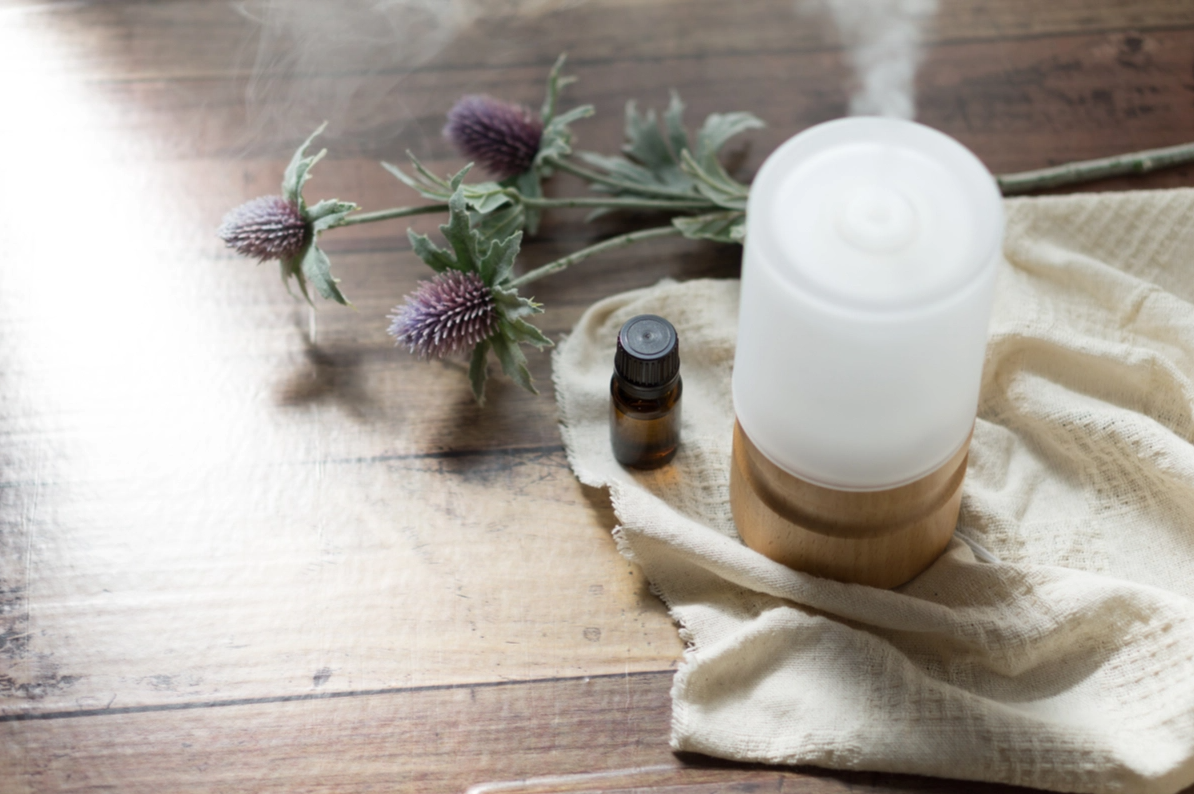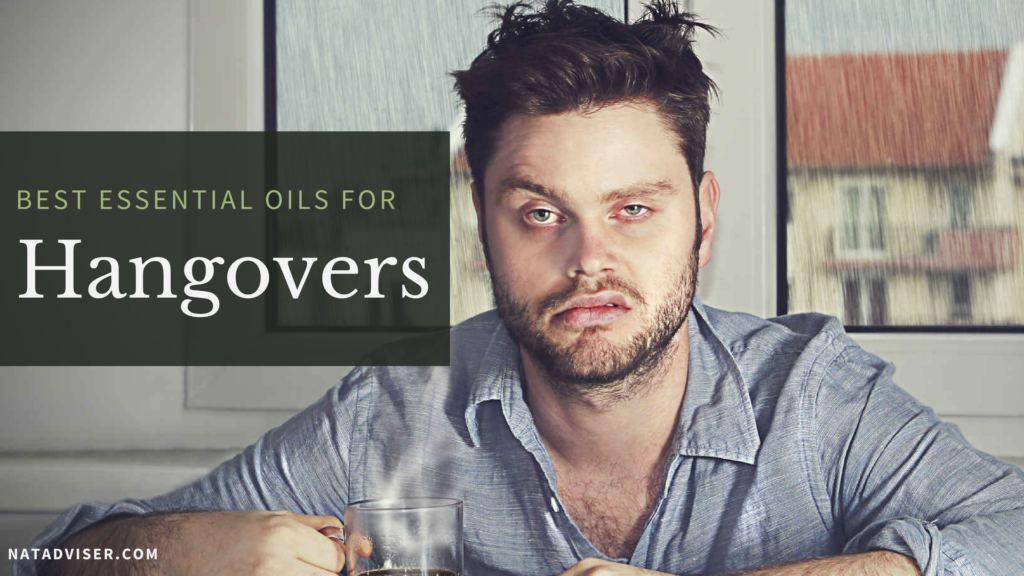
Essential oils for anxiety, depression, and stress have been used for centuries, even in old Egypt, Greece, China, India and the Roman Empire. As the years went by, and modern era, characterized by technological development approach, natural and traditional medicine became a secondary source of treatment, while synthetic drugs stepped into the forefront.
Table of contents
Unfortunately, the prescription medicine used for treating mental illnesses causes serious side effects. Hypnotic drugs, such as benzodiazepines, used for treating acute anxiety, not only increase the chances of developing cancer by 35% but are also highly addictive, especially when consumed with painkillers.
Lots of people diagnosed with anxiety refuse prescribed medications due to the high risk involved with such treatments. Leaving your mental disorder untreated isn’t a safe option either, as even the mildest mental irregularities can lead to more severe forms of psychological illnesses. Anxiety, depression, and sleep disorders are intertwined conditions. In other words, they can be the causes of each other.
Fortunately enough, essential oils for depression, anxiety, stress, and insomnia are capable of relieving the body and mind from suppressing thoughts and mood in a safe manner by simply influencing the limbic system responsible for our emotions, motivation, behavior, and long-term memory.
Aromatherapy for anxiety and depression
The human sense of smell is a powerful tool capable of triggering emotions and resurrecting old memories. Just remember how a smell of a freshly baked apple pie can bring a smile on your face, as the mind recollects the childhood memory, when the sweet and yet tangy apples touched your taste buds for the very first time.
As the scent of food elevates the mood, so is the fragrance of essential oils, whose vapor is enriched with natural chemicals, capable of influencing hypothalamus, hippocampus, and amygdalae in a much more efficient manner.
Here are explained functions of these three important parts of the limbic system that will help you understand the power of aromatherapy for depression and anxiety even further:
- Hypothalamus regulates blood pressure, heart rate, breathing pattern, hormonal production, and secretion, sleep-wake cycles, hunger and thirst etc.
- Hippocampus converts short-term memory into long-term memory. It also gives us a sense of direction and navigation.
- Amygdalae trigger fight of flight response, process memory, and emotional reactions, such as fear, anger, defensiveness and aggression
These crucial parts of the limbic system and their functions can be influenced with the help of fragrant essential oil molecules. Aromatic particles of the essence bind to human odorant receptors that send the electric impulses to the limbic system, especially hypothalamus.
The message sent to the limbic centers truly depends on the personality of the chosen essential oil. If the essence of the oil has calming nature, the limbic centers receive the impulse to relax, making your rapid heart beating and breathing caused by panic attacks soothe away.
The benefits of aromatherapy cannot be denied, with that being said, the moderation still remains the key to success.
The results of the study published in the European Journal of Cardiology suggest that exposure to essential oil for 1 hour would be effective in reducing heart rate and blood pressure
In other words, don’t overdo it as the aromatherapy may over-stimulate you!
9 Essential oils for stress, anxiety, and depression
Lavender essential oil
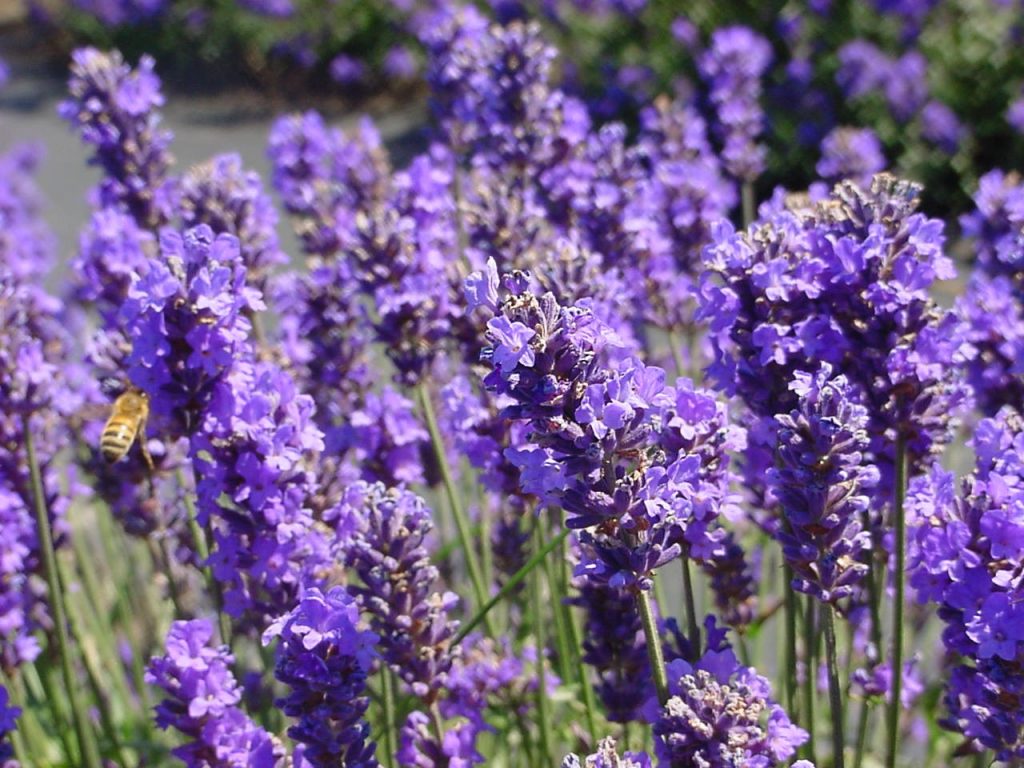
Lavender essential oil helps treat a number of neurological issues such as stress, anxiety, depression, and migraines. According to the study published in International Journal of Psychiatry in Clinical Practice, 80-milligram lavender capsules helped patients alleviate anxiety and depression without any side effects. In addition, the 2012 study published in the Complementary Therapies in Clinical Practice affirmed lavender’s healing properties, when 28 women suffering from postpartum depression experienced a significant reduction in symptoms after a four-week aromatherapy treatment.
Lavender essential oil for depression can be used as an alternative natural treatment for insomnia as well. The sweet, floral and yet herbal fragrance of lavender oil positively affects the hypothalamus responsible for setting reliable sleep-wake cycles.
Bergamot essential oil

Bergamot essential oil is enriched with natural components capable of improving blood circulation and stimulating the activity of dopamine and serotonin hormones responsible for activating the feeling of relaxation and calmness within the body. Due to its relaxant and sedative nature, the essence derived from bergamot citrus fruit can be used for treating stress, anxiety, nervous tension, depression, insomnia and high blood pressure.
The 2011 study published in the Natural Product Communication Journal investigated the effects of lavender and bergamot essential oil blend on human automatic parameters and emotional responses. The results of the study showed a significant decrease in pulse rate and blood pressure of participants, who also evaluated themselves as “more calm” and “more relaxed” than subjects in the control group.
Ylang ylang essential oil

Ylang ylang essential oil extracted from fresh flowers of Cananga Odorata tree is known for drawing away depression, anxiety, chronic stress and sadness. As a sedative and nervine agent, ylang ylang essential oil can calm heart and nervous palpitations, as well as improve any damages on the nervous system, making your mental disorder fade away.
The 2006 study conducted by Geochang Provincial College in Korea revealed the effects of lavender, ylang ylang, and bergamot essential oils aromatherapy when participants, affected by essential hypertension (high blood pressure), showed reduced psychological stress responses, serum cortisol levels, and blood pressure.
Roman chamomile essential oil
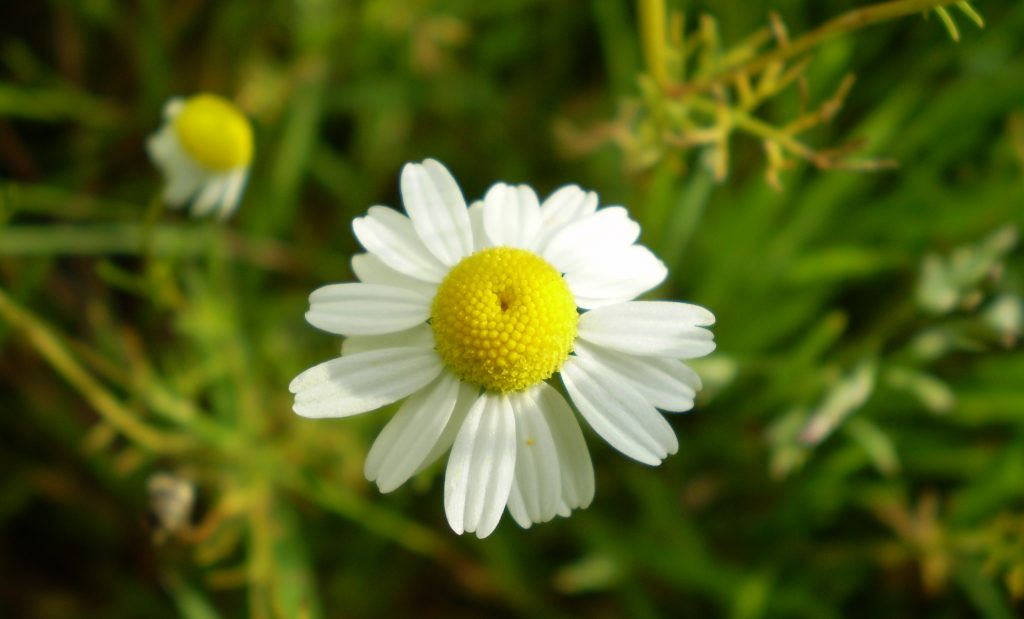
Roman chamomile essential oil calms the nervous disturbances manifested as convulsions, twitching, spasms, nervousness, and loss of control over the limbs. All these muscle irregularities are often symptoms of anxiety and stress, because such apprehensive behaviors cause the nerve impulses to fire erratically. Fortunately, natural components within the chamomile essence, such as Alpha Pinene, Camphene, Sabinene, and Gamma-Terpinene can decrease the irritability, anxiety, stress and over-thinking.
The 2009 study conducted by the researchers at the University of Pennsylvania proved the chamomile capsules to be effective at easing the anxiety symptoms of patients diagnosed with mild to moderate generalized anxiety disorder (GAD).
Frankincense essential oil

Frankincense essential oil derived from the gum or resin of Olibanum trees carries sedative qualities capable of evoking mental piece. The frankincense aromatherapy is especially effective in treating anxiety, depression, and stress. The components of the vapor, such as Alpha Pinene, Linalool, Octanol and Octyl Acetate reduce heart rate and high blood pressure, as well as open breathing passages, helping the body alleviate the distress as a result.
The 2008 study conducted by Keimyung University in Korea researched the effects of frankincense, bergamot, and lavender essential oil mix in the ratio of 1:1:1 in hospice patients with terminal cancer. The results of the study showed the aroma hand massages to be an effective natural treatment for relieving the pain and depression in participating subjects.
Jasmine essential oil

Sweet floral and yet strong scent of jasmine essential oil has a calming impact on the human central nervous system because it increases the GABA activity within the brain. Gamma-aminobutyric acid (GABA) is the main inhibitory neurotransmitter in the central nervous system responsible for regulating the emotions and reducing anxiety, fear, and panic.
In addition, the calming personality of jasmine essence can be also used for treating sleeplessness and insomnia. The treatment of chronic sleep disorders is important, as according to the statistics, patients with persistent insomnia are more than three times likely to develop depression. “When people can’t sleep, they often become anxious about not sleeping. Anxiety increases the potential for becoming depressed,” explains Stanford University research psychologist Tracy Kuo, Ph.D.
Patchouli essential oil

Patchouli essential oil is a natural antidepressant. The natural components within the patchouli essence, such as Alpha and Beta Patchoulene, Caryophyllene, Seychellene and Pogostol encourage the release of dopamine and serotonin. Dopamine is a neurotransmitter associated with clear thinking, attention, memory, drive and focus, while serotonin, as another important neurotransmitter, helps regulate mood, aggression, anxiety, and arousal.
Patchouli essential oil, due to its sedative nature, can be also used as a sleep aid for reducing the intensity of sleep disorders that often are a symptom or a cause of other mental illnesses. “What we’ve come to understand is that insomnia and depression are two distinct but overlapping disorders,” says Michael L. Perlis, MD, an associate professor of psychiatry. Needless to say, good night’s sleep improves mood, metabolic rates, and cognitive functioning.
Clary sage essential oil
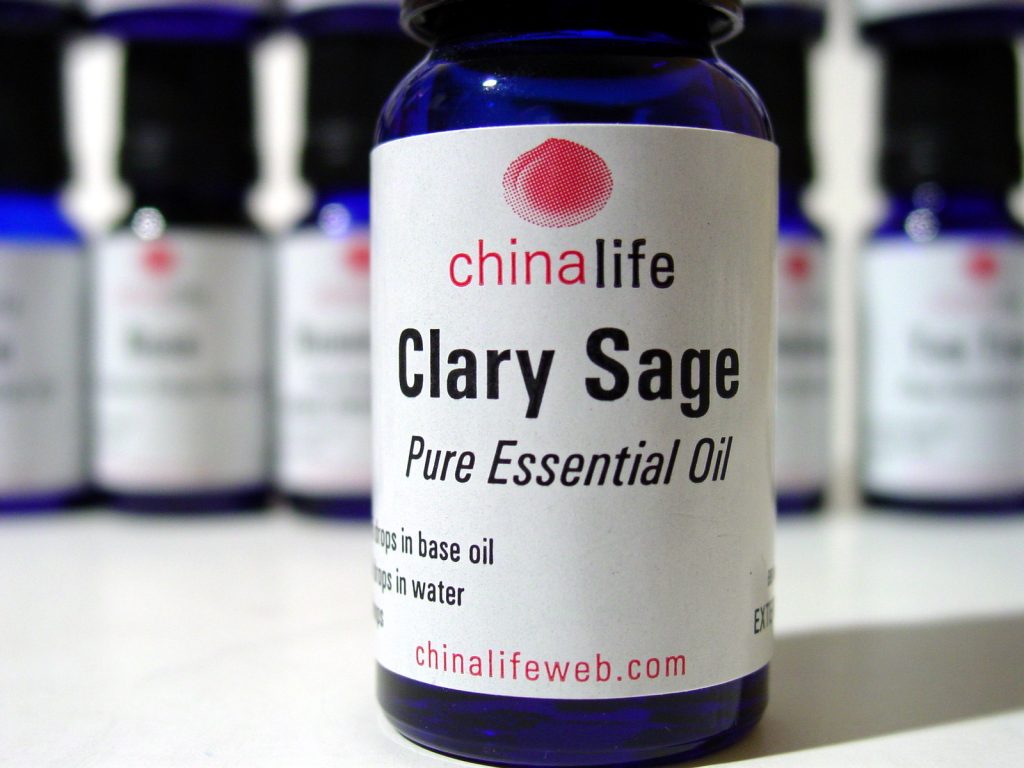
Clary sage essential oil is, as a natural source of phytoestrogens, also known as “dietary estrogen”, capable of balancing estrogen levels within the body. Estrogen, as a primary female sex hormone, is often responsible for the mood swings, irritability, anxiety, and depression that women experience during the estrogen-producing years. Postpartum depression, premenstrual syndrome, and premenstrual dysphoric disorder are some of the most common conditions known for causing mental instability.
A 2014 study published in the Journal of Phytotherapy Research exposed 22 postmenopausal women, some of whom were diagnosed with depression, to the clary sage essential oil. The results of the research proved the clary sage essential oil to be an effective natural remedy for fighting depression and lowering the cortisol levels in the blood.
Vetiver essential oil

Vetiver essential oil is derived from the Vetiveria Zizanoides plant commonly known as khus-khus. With its pleasant earthy and musky aroma, vetiver oil provides a cooling effect to the body and mind. According to the 2015 study published in the Natural Product Research Journal, vetiver oil has the same impacts as Diazepam, a medication used for treating anxiety, muscle spasms, seizures, and sleeping disorders.
Furthermore, according to the 2001 study executed by the Dr. Terry Friedman, vetiver oil is also an adequate natural substance for treating ADHD (attention deficit hyperactivity disorder) in children. The final result of this two-year study revealed that the vetiver oil increased the children’s performance by 100%, helping them combat the typical ADHD and ADD symptoms, such as lack of concentration, focus and being easily distracted as a result.
3 Ways to use essential oils + natural essential oil recipes
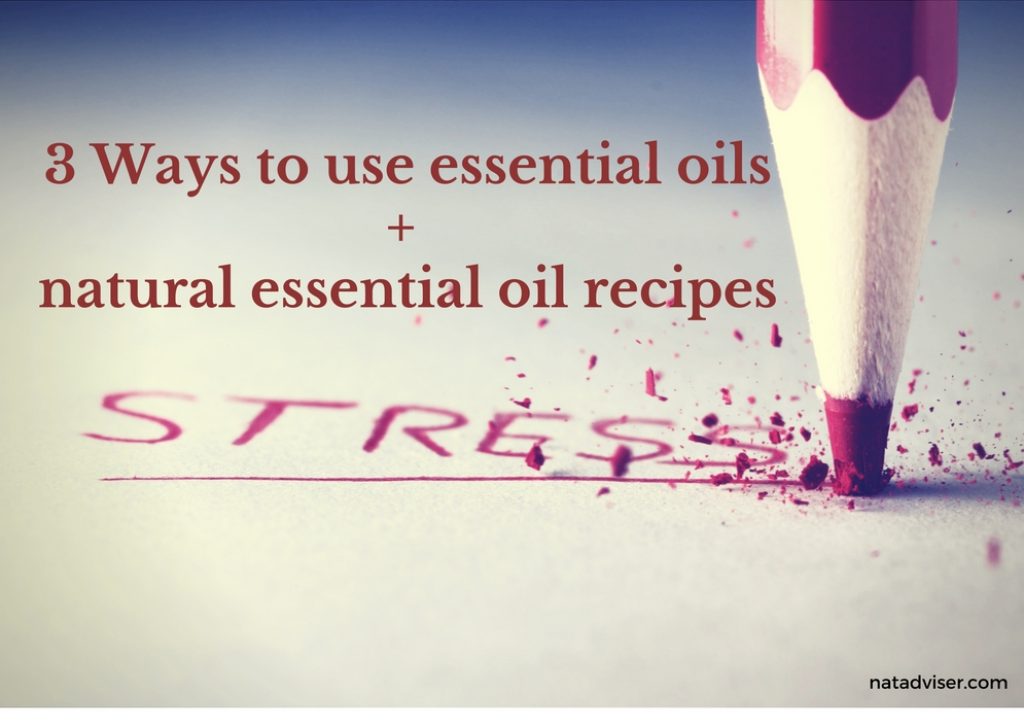
Aromatherapy
3 Brain boosting essential oil diffuser recipes
First recipe: 2 drops of ylang ylang, 1 drop of bergamot, 1 drop of lavender, 1 drop of sweet marjoram, 1 drop of roman chamomile and 1 drop of valerian essential oil
Second recipe: 2 drops of lavender, 1 drop of clary sage, 1 drop of ylang ylang and 1 drop of vanilla essential oil
Third recipe: 2 drops of geranium, 1 drop of sweet marjoram, 1 drop of patchouli and 1 drop of sweet orange essential oil
Topical application
Anxiety relief lavender rub
Ingredients:
- 3 drops of lavender essential oil
- 1 teaspoon of almond oil or fractionated coconut oil
Instructions:
- Blend lavender essential oil and almond or fractionated coconut oil in your palm.
- Rub the mixture onto your neck or on the bottoms of your feet.
Massage blend for depression
Ingredients:
- 20-30 drops of lavender essential oil
- 20-30 drops of chamomile essential oil
- 2 ounces of grapeseed oil
Instructions:
- In a glass jar, mix all ingredients in exact measurements together to form one homogenous compound.
- Massage the blend into your body or ask a professional masseuse to do it for you 2 to 3 times per month.
Using essential oils in bath
Mind and body relaxing bath
Ingredients:
- 4 drops of ylang ylang essential oil
- 4 drops of clary sage essential oil
- 3 drops of geranium essential oil
- 2 drops of basil essential oil
- 1 drops of sandalwood essential oil
Instructions:
- In a small dark glass bottle mix all essential oils in exact measurements together.
- Add 5-10 drops of the blend to the bath.
- If you have sensitive skin, dilute the 5-10 drops of essential oil blend with 1 tbsp of carrier oil before adding it to the water.
- Whenever in need, you can also inhale the fragrance of oils directly from the bottle or add 1-2 drops of the mix on your palms and sniff the vapor.
Soothing bath salt
Ingredients:
- 3 cups of Epsom salt or sea salt
- 1 drops of bergamot essential oil
- 2 drops of geranium essential oil
- 2 drops of patchouli essential oil
- 2 drops of ylang ylang essential oil
- 3 drops of neroli essential oil
- 1 tbsp of jojoba oil
Instructions:
- Add essential oils and carrier oil to the salt and thoroughly mix the ingredients with the spoon.
- Store the mixture in the airtight container.
- Add ½ to 1 cup of prepared bath salt to the water. Mix well to dissolve the salts completely.
Conclusion
It seems that mental health has become a global challenge of the 21st century. According to the Journal of the American Medical Association, the percentage of Americans on antidepressants has increased from 6.8% to 13% from 1999 to 2012.
Here are last 6 tips that will help you put the listed essential oils for calming anxiety safely to use:
- Before introducing a new essential oil to your therapy do a skin test patch to make sure you are not allergic to the natural remedy.
- If you have been diagnosed with a skin condition or have other illness that may get compromised by the essential oil, make sure to consult with your medical specialist beforehand.
- Don’t apply essential oil-based treatments to open wound or cuts on your skin.
- If you are pregnant or breastfeeding, consult with your medical specialist about the possible side effects that some essential oil may cause.
- When making massage blends always dilute your essential oils with the carrier oil. The essential oil concentration within the blend should not exceed 2%.
- Hypotension patients should choose their oils carefully because some essential oils for anxiety, such as ylang ylang, are known for lowering pressure.
Unfortunately, more and more people are befriending prescription drugs whose side effects are everything but friendly. Essential oils for stress anxiety, on the other hand, are an excellent alternative to these modern medications because they are, when used correctly, capable of directly influencing the limbic centers of the brain responsible for our emotions without any side effects.
Sources and References
- MentalHealth Anxiety Disorders
- HealthDirect Anxiety – symptoms, treatment and causes
- MedlinePlusAnxiety




